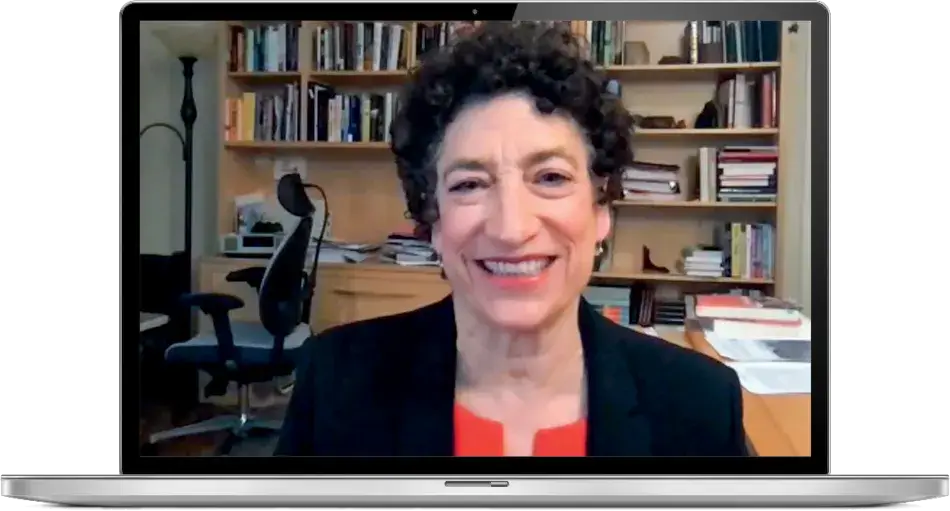
Throughout the period of social distancing, the Academy has worked to stay connected with members and continue the tradition of convening experts from across disciplines and professions to discuss important issues. As much of the world moved temporarily online, the Academy has leveraged video conferencing technology to hold a series of member events.
The virtual programs have covered a breadth of topics all directly related to or informed by the COVID-19 crisis, such as science skepticism, anti-immigrant sentiment, epidemiology and virology, gender disparities, and the arts. These programs have harnessed the convening power of the Academy, offering members the opportunity to explore topics with an immediacy that the pandemic demands.
Each program included time for participation from the audience and, although nothing can replace the camaraderie of gathering in-person, the virtual events have captured much of the spirit and depth of a traditional Academy gathering. Members have the option to make themselves visible to each other and have used the Zoom platform to ask probing questions, share observations, alert colleagues to relevant publications, and send well-wishes. “These online discussions have been a great opportunity to participate in the dynamic conversations that characterize being a member of this Academy, even when we cannot be together in person,” noted Academy President David Oxtoby.
The virtual gatherings have even proven to be preferable to in-person events in one respect – by eliminating geographic barriers, Academy members from across the world are able to participate in the same discussions at the same time. As one survey respondent from the Midwest summarized, “I have regretted missing real time access to so many American Academy presentations because of geographic remoteness. The Zoom environment offered a welcome remedy to that.”
The conversations are recorded and available on the Academy’s website and YouTube page.
In April and May, the Academy hosted five online discussions
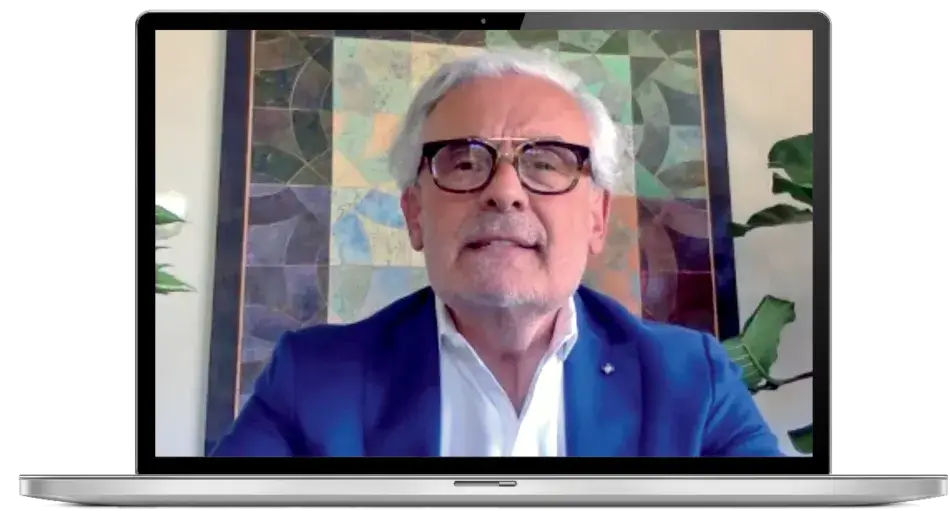
Immigration’s “Malaise” in the Age of COVID-19
April 21, 2020
Marcelo Suárez-Orozco (University of Massachusetts Boston; formerly, University of California, Los Angeles) led a conversation on how currents of nativism and xenophobia are historically weaponized against immigrants in frightful times. With his work on the Academy’s Commission on the Practice of Democratic Citizenship and a recent Pontifical Academy statement on protecting the vulnerable as a backdrop, Professor Suárez-Orozco discussed the centrality of immigrants – forced and voluntary – to our culture. His remarks explored the current discourse surrounding migration, placing today’s anti-immigrant sentiment in a historical context in which contamination, pollution, and contagion have repeatedly been used as a metaphor in anti-immigration rhetoric. He also discussed the moral and institutional obligation to find oneself “in another” during the COVID-19 crisis. Professor Suárez-Orozco elaborated on the role institutions – particularly universities – can play in protecting the most vulnerable. He called on his colleagues across academia to work to “lower the temperature” on the damaging incendiary rhetoric surrounding immigration and “convert the dread of the unfamiliar other into a sense of solidarity, fraternity, and . . . a desire for cultural difference.”
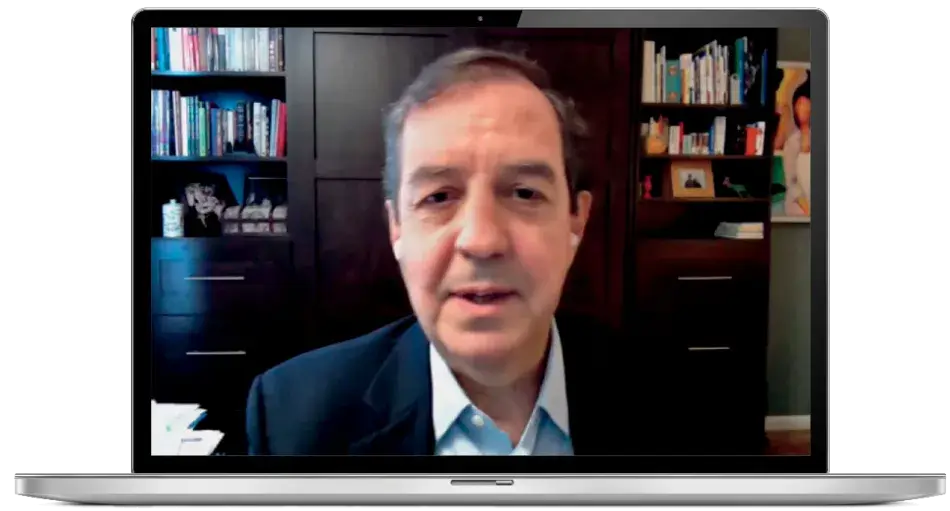
The Science and Epidemiology of COVID-19
April 30, 2020
Nancy Andrews (Duke University), chair of the Academy’s Board of Directors, moderated a session with renowned virologist Lawrence Corey (Fred Hutchinson Cancer Research Center) and global health leader Jaime Sepulveda (University of California, San Francisco). Dr. Sepulveda discussed the origins of the pandemic, the timeline of its spread, and the racial disparities in contraction and mortality that have become apparent in America. He also described some conditions that must be met before we can return to a version of normalcy: such as low transmission, on-demand testing, and organized contact tracing. Dr. Corey focused on the biology and physiology of the disease, potential therapies, and his work with Anthony Fauci and the National Institutes of Health on the rapid assessment of potential vaccines. Dr. Corey expressed some optimism that the genetic makeup of the disease would lend itself to the development of an effective vaccine. The discussion that followed was similarly illuminating, prompting one attendee to remark, “I learned more about this pandemic in that 60 minutes than I have in 6 weeks of news consumption.”
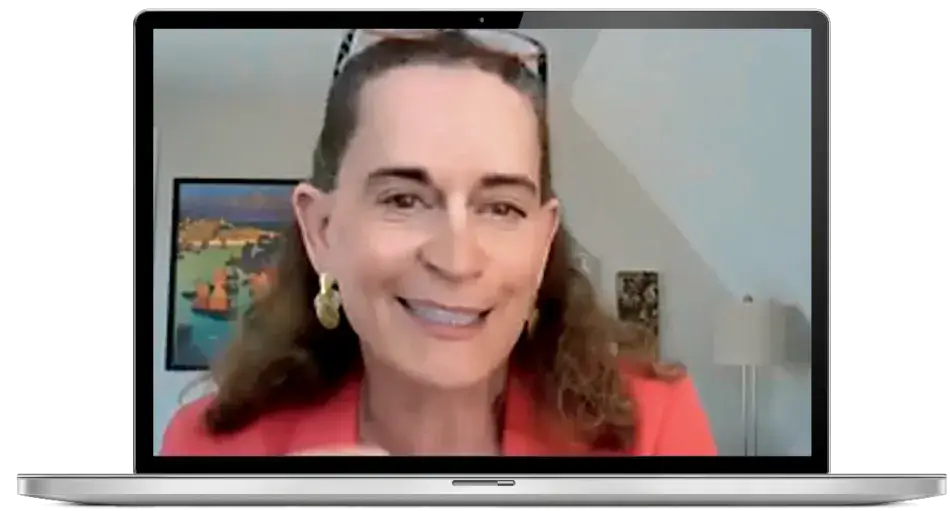
Gender, Work, and COVID-19
May 13, 2020
Frances McCall Rosenbluth (Yale University) and Debora Spar (Harvard Business School) led a conversation on how the massive social disruption of COVID-19 is impacting gender and work, drawing on their essays published in the Winter 2020 issue of Dædalus on “Women and Equality,” coedited by Rosenbluth and Nannerl Keohane (Princeton University). Professor Keohane began the program with an overview of the Dædalus issue. Professor Rosenbluth, coauthor of the essay “The Dilemma of Gender Equity: How Labor Market Regulation Divides Women by Class,” summarized the problems facing women in this crisis. She also polled the audience about the potential for lasting flexibility in the workplace that could contribute to equality. Professor Spar, author of “Good Fellows: Men’s Role and Reason in the Fight for Gender Equality,” echoed a similarly cautious optimism that this period could help remake the workplace for the better and shared some historical perspective on a pre-industrial time when gender roles were much blurrier. The ensuing discussion included probing questions on the state of the institution of marriage and an extended conversation on the way the COVID-19 crisis exacerbates existing economic inequalities among working women.
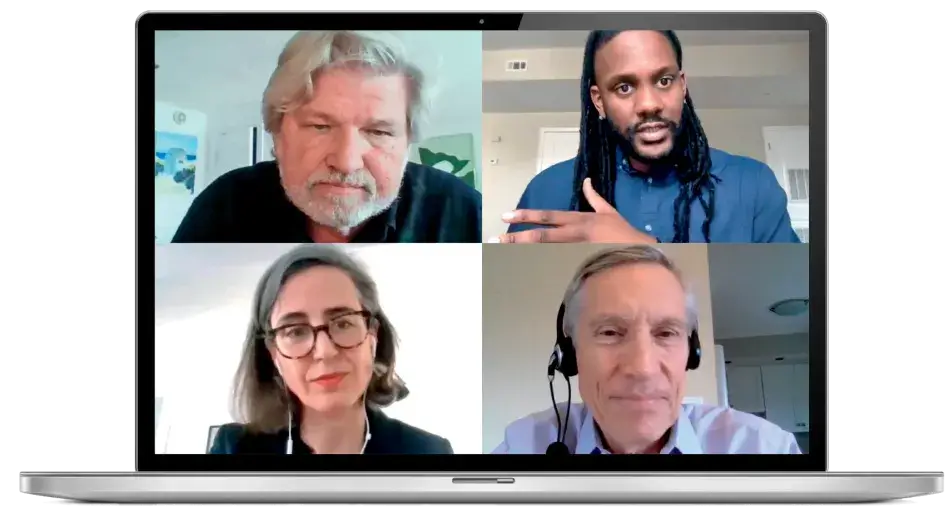
How the Arts are Surviving the COVID-19 Pandemic
May 27, 2020
Two members of the Academy’s Commission on the Arts joined the Academy’s Chief Program Officer Tania Munz in a conversation on the challenges and opportunities the COVID-19 crisis creates for arts organizations and arts practitioners. Robert Lynch, president and CEO of Americans for the Arts, shared initial survey data on the financial realities facing the arts as a whole and illustrated that the arts are a crucial sector of the U.S. economy. Mr. Lynch also provided thoughts on what the period of recovery and reinvention could look like post-crisis. Michael O’Bryan, director of learning at the Village of Arts and Humanities in North Philadelphia, discussed the role of the arts in closing empathy gaps and made a passionate case for why arts funding must be preserved despite municipal revenue crises. The panelists answered questions from the audience, including one from John Lithgow, cochair of the Commission on the Arts, about empathy, economics, and toxicity in American culture.
Please visit www.amacad.org/events to see a full list of available programming. If you have suggestions about future topics or speakers, please contact Laurie McDonough, Morton L. Mandel Director of Membership Engagement, at lmcdonough@amacad.org.
